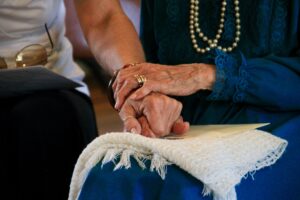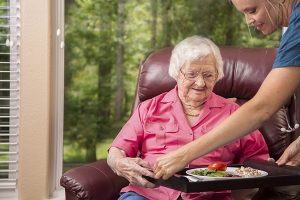
Approximately 47.8 million Americans are sixty-five or older. This amounts to 14.9 percent of the entire population. Given this statistic, it’s likely that you know or live with a senior and are familiar with the needs of elderly care. Sometimes this takes the form of assistance with day-to-day living, disease management, or mental health.
You might wonder how to make their lives easier. In-home elder care, when done right, is a great option to consider.
Let’s take a look at the benefits of 24-hour care for the elderly in their own home, what your options are, and how to make the right choice for your situation.
Types of Elderly Home Care in Milwaukee
Agencies that offer in-home care usually have different options for elder care to choose from, so you can pick one that suits you and your elderly loved one’s needs. Some seniors may not be comfortable with full-time care, whereas others may have circumstances that demand 24-hour personal care.
In-Home Care
Do your loved ones need timely, regular assistance throughout the day? In-home care involves personal assistance with day-to-day activities. This could include cooking, cleaning, and performing various other tasks that they find too difficult to complete themselves.
If you’re living with a senior but need additional assistance for them while you’re at work, this is a great option for you.
24-Hour Personal Care for Seniors
This is a good option for seniors living by themselves, or those who need 24-hour dedication and care. It’s also great for seniors who find themselves feeling lonely during the day.
Having a consistent, compassionate presence around can help improve their mental health. A qualified team of caregivers will be responsible for providing consistent care and support throughout the day, whenever needed.
Specialized Care & Disease Management
If a senior has specific disabilities or ailments like Alzheimer’s disease or dementia, they will likely need more intensive care. In this case, it is important to get the specialized services of caregivers who have experience with these illnesses and understand them well.
These advanced care programs bring an individualized, customized approach to caregiving. Often, dementia or other chronic illnesses can become the identity of those living with them. It is therefore essential to get the care that allows seniors to express their creativity, thoughts, and live a full, well-rounded life.
Benefits of In-home Assistance for Seniors
There are many benefits to in-home care. In-home care allows seniors to retain the comfort of their homes while also getting the dedicated care they need and avoiding the sense of loss that one might experience if moving to a senior living community.
In-home assistance promotes engagement, independence, and other important factors that contribute to a senior’s wellness. It allows them to maintain control over their own lives without feeling like a burden to their families.
Choosing One That’s Right for Your Needs
Now that you’re familiar with your options, you might wonder which one is right for your loved ones. Seeking in-home help for elderly family members is certainly a big step to take, and you should be diligent and mindful of who you choose. Here are a few factors to keep in mind.
Experience
Experience is a big determinant of how a home care agency and its caregivers work. A more experienced team will be better equipped to care for seniors. This is especially true for seniors who live with chronic illnesses, as they require a dedicated, personalized approach that comes from a place of knowledge, empathy, and patience.
Ask any agency you’re considering how long they’ve been running, what makes their services excellent, and why you should trust them with your loved one’s care.
Credentials
What kind of background should caregivers have? When looking for caregivers, the two most common credentials you will encounter are Patient Care Assistant (PCA) and Certified Nursing Assistant (CNA). PCAs typically undergo 40 to 75 hours of supervised training, which includes taking blood pressure, pulse, and temperature readings, utilizing universal precautions, and companion skills. CNAs are required to complete a more intensive training that includes wound care, setting up and properly using medical equipment, and administering medication. PCAs and CNAs both play an important role in the care continuum.
Contracts and Plans
After you choose a specific company, you will then need a plan. Better agencies will provide an assessment by a Registered Nurse who will then write a personalized care plan. Be sure to examine any contract or plan presented to you to see if it matches your needs. Do not sign anything that you and your loved one are not comfortable with.
If your requests are being ignored, or you feel like there is a lack of transparency, it might be best to find another senior care provider. If you suspect something fishy, be sure to ask a lot of questions.
The senior’s well-being and safety should always be prioritized. Do not settle for anything less than that.
Find Qualified Senior Care Services in Milwaukee Today
Finding the right fit for your needs can be a tedious task. That’s why we encourage you to do plenty of research and read lots of reviews about the agencies you choose to employ.
Involve seniors in the decision-making process as well. Their comfort should be of primary importance.
Do you still have questions about elderly home care? Not sure what to expect? Get in touch to find out more about our options for senior care in Milwaukee.












